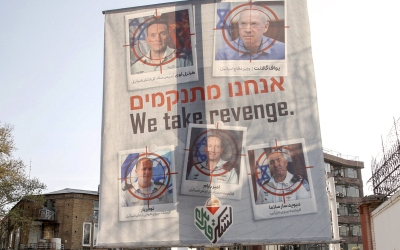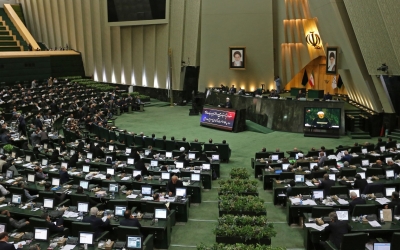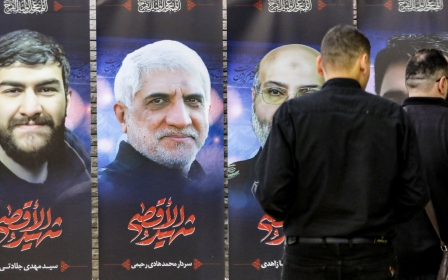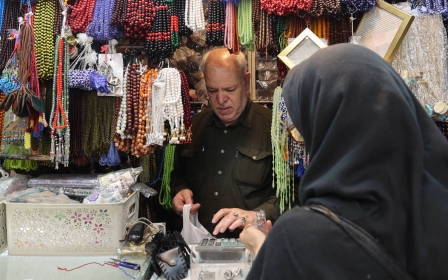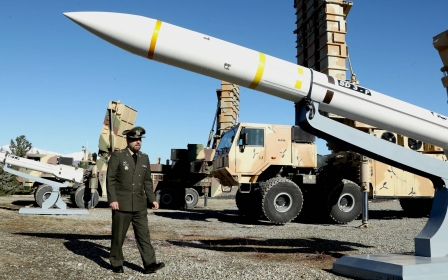Iranian press review: Long-awaited pardon for imprisoned ecologists stirs criticism
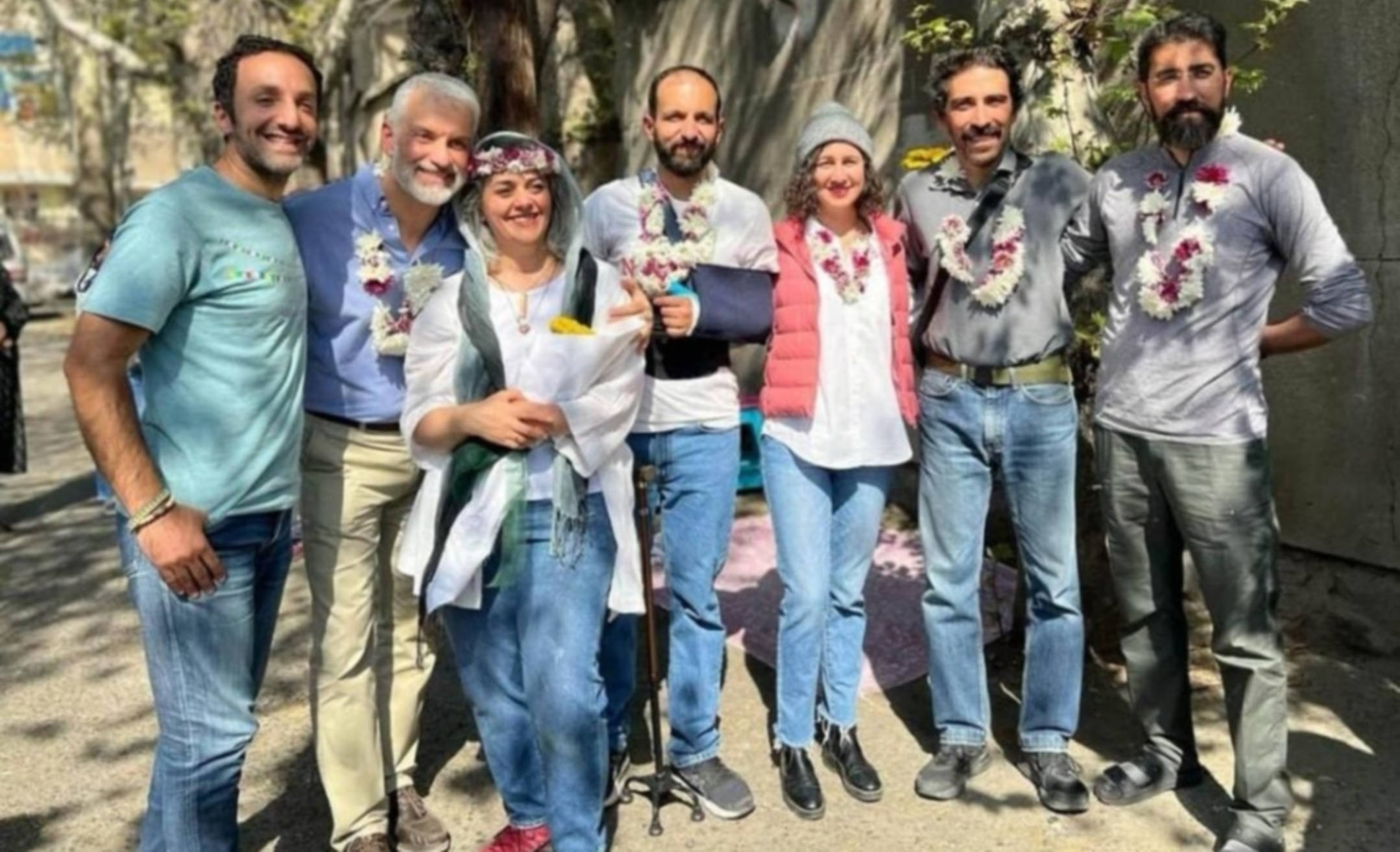
Environmentalists pardoned too late
The decision to pardon four environmental activists has been broadly welcomed by Iranians. But many say the establishment took too long to free them, and has still not addressed the injustice they faced in prison.
On Sunday, local media reported that Houman Jokar, Niloufar Bayani, Spideh Kashani, and Taher Ghadirian were pardoned as part of an amnesty approved by Iran's supreme leader to commemorate the Islamic holiday of Eid al-Fitr.
On Monday, photos of Jokar and Bayani outside the infamous Evin prison were published on Farsi social media. Two days later, local media published a photo of the four freed activists posing with three other environmentalists who had already been released after serving their sentences: Amir Hossein Khaleghi, Sam Rajabi, and Abdolreza Kouhpayeh
The Sazandegi daily reported the pardon under the headline: “The late freedom.” While the Ham Mihan daily covered the incident with the headline: “Pardon after imprisonment.” Both outlets reported that Iran’s Islamic Revolutionary Guard Corps (IRGC) arrested the activists despite clear evidence of their innocence.
New MEE newsletter: Jerusalem Dispatch
Sign up to get the latest insights and analysis on Israel-Palestine, alongside Turkey Unpacked and other MEE newsletters
Many Iranians took to social media to express both their relief and their anger that the activists were sentenced in the first place.
“Environmental activists were released, but did anyone understand what their crime was? Why did they spend so many years in prison? Did Kavous Seyed-Emami commit suicide in prison or was he murdered?” one Iranian user wrote on X, formerly known as Twitter.
The environmentalists were arrested by the IRGC on 24 and 25 January 2018 and charged with espionage and acting against the establishment. They were all sentenced to long prison terms of between six and ten years.
In February 2018, the authorities announced that Seyed-Emami, a prominent Iranian-Canadian environmentalist, committed suicide in prison. In September 2023, Tahbaz, a British-American conservationist, was released in a prisoner swap with the US.
Retaliation could be exploited to expand conflict
Over a week after an Israeli air raid that struck Iran’s consulate in Syria, discussions surrounding Tehran’s potential response remain heated, with some cautioning officials about the consequences of any retaliatory actions on their country’s future.
Tehran has vowed proportional retaliation, although some similar promises have gone unfulfilled following other attacks where IRGC members were killed.
On Tuesday, Kourosh Ahmadi, a former Iranian diplomat to the United Nations, wrote in the Shargh daily that such a response would contradict efforts by Iran, the US, and Lebanon's Hezbollah to avoid an all-out regional war.
Ahmadi said there had been a shift in Israel’s strategy, particularly since the country had failed to meet its objectives in the initial three months of the Gaza war.
“There is no doubt that the leaders of the Islamic Republic are facing one of the most challenging decisions in their history. Considering the significant losses and risks associated with seeking revenge, as well as the losses that refraining from retaliation might entail,” Ahmadi wrote.
He suggested a third option: “a limited and controlled attack, similar to the strike on Ain al-Assad.”
Ain al-Assad airbase in Iraq, which hosts American troops, was targeted by Iran in response to the 2020 killing of IRGC Quds Forces commander Qassem Soleimani. However, Iranian hardliners said the attack was insufficient as it was later revealed that the timing had been communicated to Iraqi officials beforehand.
Ahmadi argued that even a carefully calibrated response could yield unforeseen consequences, especially given the volatile situation in Gaza. "Israel might exploit even a limited attack as grounds to expand the conflict. Our authorities should heed historical lessons, recognising that a war cannot always yield the domestic unity it aims to achieve,” he concluded.
US blocks Iranian-Canadian men at border
Many Iranian-Canadian men have been banned from entering the US or faced additional restrictions at the border due to being blacklisted by Washington for serving their mandatory military service in the IRGC, according to the BBC's Persian TV channel.
The BBC highlighted the experience of four families whose lives had been dramatically affected by the US decision to blacklist the IRGC as a terrorist group in 2019.
Military service in Iran is mandatory for all men over 18. They have no control over where they will serve.
According to the BBC Persian report, the number of Iranian-Canadian men banned from entering the US has doubled since 2022, and in some cases, the ban has been extended to the families of men who had served in the IRGC.
Those who spoke to BBC said they had faced long interrogations at the US-Canada border, loss of work in the US, and family breakdown.
The BBC added that hundreds of Iranian-Canadian men have been affected and can even face interrogation when they travel to Mexico or the European Union.
* Iranian press review is a digest of news reports not independently verified as accurate by Middle East Eye.
Middle East Eye delivers independent and unrivalled coverage and analysis of the Middle East, North Africa and beyond. To learn more about republishing this content and the associated fees, please fill out this form. More about MEE can be found here.


